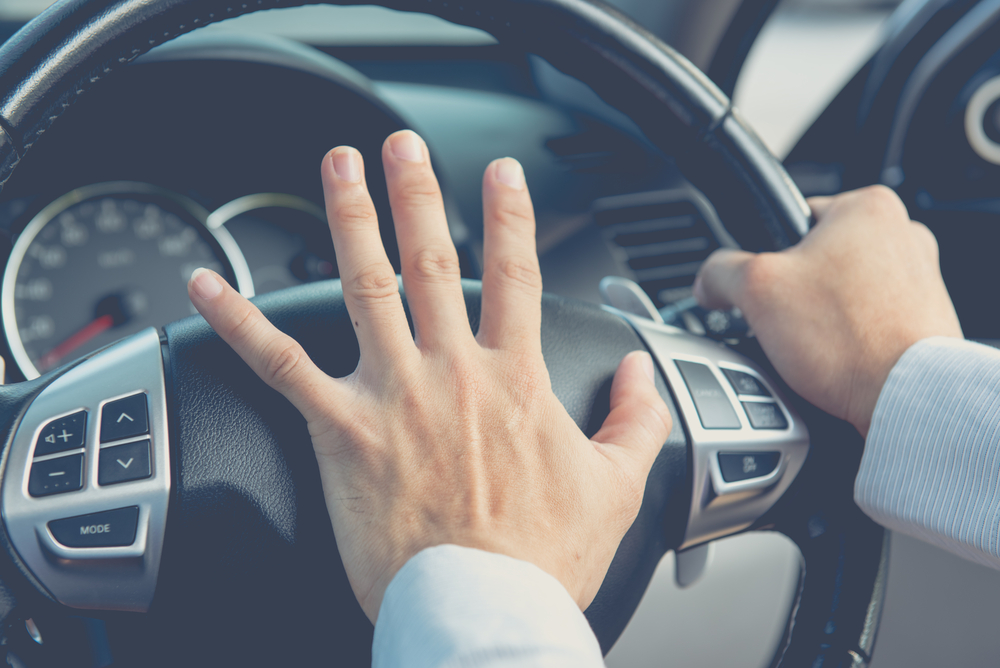It’s incredibly frustrating when you see a bad driver. While you may wish to blast your horn, flash them or worse, it’s important to try and remain passive and don’t try and express your fury with them – it could make things much worse. This is sadly much easier said than done, after all they may have our you and your passengers in a very dangerous situation.
Bad drivers generally fall into two categories:
- Inadvertently Bad – Sometimes a ‘bad’ driver is not a bad driver, as such, but they have done something stupid, performed a poor overtake, were not concentrating, etc. They may have covered thousands of problem-free miles, but the first (and probably the last) time you will ever see them is when they have cut you up, pulled out in front of you and so on during a lapse of judgment. It’s a fair assumption to consider them, for the moment your paths have crossed, as a bad driver.
- Habitually Bad – These drivers are the worst. They often display a constantly poor attitude, speed, take risks and so on. However, those who are inadvertently bad (point 1) can, to some degree, also be classified in this group, such as those who perhaps don’t speed or have a bad attitude but don’t really pay attention, don’t look far enough ahead or “zone out” when they drive.
Drivers fall into a huge melting pot of good, average and poor. Sometimes, but relatively rarely, poor drivers can be good and sometimes (much more commonly) good drivers can be poor. It depends on how often a driver deviates from their “normal” which generally confirms what sort of driver they are.

So, should you report all bad drivers?
As the ‘observing’ driver who has witnessed a bad driver, you will probably have no idea if they are habitually bad or if it was an inadvertently one-off bad decision, or they don’t mean to be bad but are oblivious. However, your frustration will no doubt cause you to contemplate reporting the driver. We can’t say what you should or should not report. However, if you do, you have a few options:
You can report bad driving directly to a business if a driver is in a commercially branded vehicle. Many commercial vehicles have a “How’s My Driving” sticker or similar on the back. As a business that provides driver training to companies, we often receive enquiries from businesses that have had reports of an employee driving to a poor standard in company vehicles. Many businesses with a strong health and safety focus tend to take reports of bad driving very seriously. For private motorists, you can report bad driving to the Police via Operation Snap (which also applies to both business and private drivers). You will need to have dashcam footage to submit evidence.
You are able to submit video evidence here
We all make mistakes
While bad driving is annoying, it’s important to remember that once in a while, we all make mistakes. The link above is to submit evidence for driving, which really does fall way below the standard expected of a good driver. Operation Snap will not consider or process minor road traffic offences or breaches of the highway code where the threat, risk and harm level is low. Also you should not use Operation Snap to report parking offences.
If someone’s apparent bad driving has caused road rage, consider these points:
1. Many drivers don’t intend to annoy you. A slow driver may have health issues, poor eyesight – which often makes night driving very hard, unfamiliar with the car, is lost, has no idea their full beam is on, has no idea you want to overtake, is nervous about driving, etc.…
2. An aggressive boy racer – let them pass. The Police will eventually catch up with them if they continue to drive like that.
3. Don’t take it personally – one road rage (aggressor) client we had gave a very good insight as to why they always try and overtake other cars (and often trigger road rage):
“I don’t have any personal issues with the drivers I am trying to overtake, I just see the vehicles as moving obstacles I need to get past quickly. I don’t actually give the driver any thought.”
4. If you feel anger building up, acknowledge it, but don’t react. If you need to react, make a promise to yourself that you will react – but do it later on in the day – pick a time to do this. By then, in all probability, the anger will be long gone! This is not easy, but arming yourself with this technique can actually help defuse anger as it happens.
Get in Touch
For any questions related to bad driving please get in touch. We offer bespoke driving courses for drivers who need to increase their level of skill and address any issues, which may be causing them to get into situations on the road.

